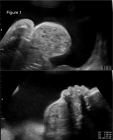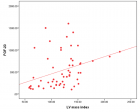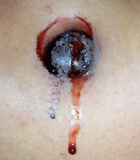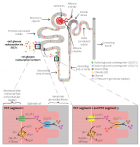Abstract
Research Article
Prevalence of and institutional factors associated with depression among undergraduate students at Gulu University
Lucas Goodgame Anyayo, Amir Kabunga*, Ponsiano Okalo, Brenda Apili and Viola Nalwoga
Published: 11 March, 2022 | Volume 6 - Issue 1 | Pages: 001-006
Background: Many institutional factors predispose University students to mental health issues, including depression. However, with no central database for depression in Uganda, literature on depression and associated institutional factors among undergraduate students is scarce. This study examined the prevalence of and institutional factors associated with depression among undergraduate students at Gulu University.
Methods: This was a cross-sectional survey among 452 undergraduate students at Gulu University in the academic year 2018/2019 in February and March 2019. A stratified simple random sampling was used to identify the participants. A self-administered questionnaire was used to collect data. Descriptive statistics, including mean and frequency, were used. We conducted a bivariate analysis to determine the association between variables employing Pearson’s chi-square test or Fischer’s exact test. We conducted a multivariate analysis with factors that had significant P-values of less than 0.05.
Results: The average age of the respondents was 22.4 (SD - 2.4), more than half (53.1%) were male and 38.50% were in the second year. The results show that 31.19% reported depression. After controlling for age and sex, the results showed that there was a statistically significant correlation between depression and faculty (aOR - 1.15), year of study (aOR - 0.77), happiness with the course (aOR - 0-0.49), satisfaction with academic performance (aOR - 0.45), and satisfaction with academic quality (aOR - 0.61). The results indicated that the predictors of depression among undergraduate students were faculty, year of study, satisfaction with academic performance, and satisfaction with academic quality.
Conclusion: A substantial proportion of Gulu University undergraduate students reported high levels of depression. The results, therefore, showed that depression in undergraduate students is an identifiable disorder that needs diagnosis, prevention, and treatment. Faculty, year of study, satisfaction with academic performance, satisfaction with academic quality were predictors of depression. Thus there is an urgent need for counseling, psychoeducation, and preventive mental health services as an essential part of the university setup.
Read Full Article HTML DOI: 10.29328/journal.ida.1001029 Cite this Article Read Full Article PDF
References
- Fruehwirth JC, Biswas S, Perreira KM. The Covid-19 pandemic and mental health of first-year college students: Examining the effect of Covid-19 stressors using longitudinal data. Plos One. 2021; 16: e0247999. PubMed: https://pubmed.ncbi.nlm.nih.gov/33667243/
- Health CfCM. Center for collegiate mental health 2018 annual report. Center for Collegiate Mental Health University Park;
- Rotenstein LS, Ramos MA, Torre M, Segal JB, Peluso MJ, et al. Prevalence of depression, depressive symptoms, and suicidal ideation among medical students: a systematic review and meta-analysis. JAMA. 2016; 316: 2214-2236. PubMed: https://pubmed.ncbi.nlm.nih.gov/27923088/
- Joseph D. Prevalence of depression among pre-university college students in an urban area of South India. Int J Curr Res. 2011; 3: 439-442.
- Olum R, Nakwagala FN, Odokonyero R. Prevalence and factors associated with depression among medical students at makerere University, Uganda. Adv Med Educ Prac. 2020; 11: 853. PubMed: https://pubmed.ncbi.nlm.nih.gov/33209071/
- Association AP. Diagnostic and statistical manual of mental disorders (DSM-5®: Am Psychiatric Pub; 2013.
- Seki T, Hamazaki K, Natori T, Inadera H. Relationship between internet addiction and depression among Japanese university students. J Affect Disord. 2019; 256: 668-672. PubMed: https://pubmed.ncbi.nlm.nih.gov/31299448/
- Dyrbye LN, Harper W, Durning SJ, Moutier C, Thomas MR, et al. Patterns of distress in US medical students. Med Teacher. 2011; 33: 834-839. PubMed: https://pubmed.ncbi.nlm.nih.gov/21942482/
- Kaggwa MM, Muwanguzi M, Nduhuura E, Kajjimu J, Arinaitwe I, et al. Suicide among Ugandan university students: evidence from media reports for 2010–2020. B J Psych Int. 2021; 18: 63-67. PubMed: https://pubmed.ncbi.nlm.nih.gov/34382950/
- Puthran R, Zhang MW, Tam WW, Ho RC. Prevalence of depression amongst medical students: A meta‐ Med Educ. 2016; 50: 456-468. PubMed: https://pubmed.ncbi.nlm.nih.gov/26995484/
- Rubin LE. Student mental health in a chiropractic university setting. J Chiropr Educ. 2008; 22: 12-16. PubMed: https://pubmed.ncbi.nlm.nih.gov/18483587/
- Othman N, Ahmad F, El Morr C, Ritvo P. Perceived impact of contextual determinants on depression, anxiety and stress: a survey with university students. Int J Mental Health Sys. 2019; 13: 1-9.
- Sokratous S, Merkouris A, Middleton N, Karanikola M. The prevalence and socio-demographic correlates of depressive symptoms among Cypriot university students: a cross-sectional descriptive co-relational study. BMC Psychiatry. 2014; 14: 1-15.
- Wahed WYA, Hassan SK. Prevalence and associated factors of stress, anxiety and depression among medical Fayoum University students. Alexandria J Med. 2017; 53: 77-84.
- Abdelhafiz AS, Alorabi M. Social stigma: the hidden threat of COVID-19. Fronti Public Health. 2020: 429. PubMed: https://pubmed.ncbi.nlm.nih.gov/32984238/
- Nakimuli-Mpungu E, Musisi S, Wamala K, Okello J, Ndyanabangi S, et al. Effectiveness and cost-effectiveness of group support psychotherapy delivered by trained lay health workers for depression treatment among people with HIV in Uganda: a cluster-randomised trial. Lancet Glob Health. 2020; 8: e387-e398. PubMed: https://pubmed.ncbi.nlm.nih.gov/32035035/
- Dyson R, Renk K. Freshmen adaptation to university life: Depressive symptoms, stress, and coping. J Clin Psychol. 2006; 62: 1231-1244. PubMed: https://pubmed.ncbi.nlm.nih.gov/16810671/
- Krejcie RV, Morgan DW. Determining sample size for research activities. Educ Psychological Measure. 1970; 30: 607-610.
- Tsai AC. Reliability and validity of depression assessment among persons with HIV in sub-Saharan Africa: systematic review and meta-analysis. J Acquir Immune Defic Syndr. 1999; 2014; 66: 503. PubMed: https://pubmed.ncbi.nlm.nih.gov/24853307/
- Valle R, Sánchez E, Perales A. Depressive symptomatology and alcohol-related problems during the academic training of medical students. Rev Peru Med Exp Salud Publica. 2013; 30: 54-57. PubMed: https://pubmed.ncbi.nlm.nih.gov/23612813/
- Aniebue PN, Onyema GO. Prevalence of depressive symptoms among Nigerian medical undergraduates. Trop Doct. 2008; 38: 157-158. PubMed: https://pubmed.ncbi.nlm.nih.gov/18628542/
- Gold JA, Hu X, Huang G, Li WZ, Wu YF, Gao S, et al. Medical student depression and its correlates across three international medical schools. World J Psychiatry. 2019; 9: 65-77. PubMed: https://pubmed.ncbi.nlm.nih.gov/31799151/
- Lovell GP, Nash K, Sharman R, Lane BR. A cross‐sectional investigation of depressive, anxiety, and stress symptoms and health‐behavior participation in A ustralian university students. Nursing Health Sci. 2015; 17: 134-142. PubMed: https://pubmed.ncbi.nlm.nih.gov/24799077/
- Rizvi F, Qureshi A, Rajput AM, Afzal M. Prevalence of depression, anxiety and stress (by DASS scoring system) among medical students in Islamabad, Pakistan. Br J Med Med Res. 2015; 8: 69-75.
- Abdallah AR, Gabr HM. Depression, anxiety and stress among first year medical students in an Egyptian public university. Int Res J Med Med Sci. 2014; 2: 11-19.
- Ngasa SN, Sama CB, Dzekem BS, Nforchu KN, Tindong M, et al. Prevalence and factors associated with depression among medical students in Cameroon: a cross-sectional study. BMC Psychiatry. 2017; 17: 1-7. PubMed: https://pubmed.ncbi.nlm.nih.gov/28599624/
- Dafaalla M, Farah A, Bashir S, Khalil A, Abdulhamid R, et al. Depression, anxiety, and stress in sudanese medical students: a cross sectional study on role of quality of life and social support. Am J Educ Res. 2016; 4: 937-942.
- Opoku-Acheampong A, Kretchy IA, Acheampong F, Afrane BA, Ashong S, et al. Perceived stress and quality of life of pharmacy students in University of Ghana. BMC Res Notes. 2017; 10: 115. PubMed: https://pubmed.ncbi.nlm.nih.gov/28253905/
- Worku D, Dirriba AB, Wordofa B, Fetensa G. Perceived stress, depression, and associated factors among undergraduate health science students at Arsi University in 2019 in Oromia, Ethiopia. Psychiatry J. 2020; 2020.
- Pérez-Rojas AE, Lockard AJ, Bartholomew TT, Janis RA, Carney DM, et al. Presenting concerns in counseling centers: The view from clinicians on the ground. Psychol Serv. 2017; 14: 416-427. PubMed: https://pubmed.ncbi.nlm.nih.gov/29120200/
- Deroma VM, Leach JB, Leverett JP. The relationship between depression and college academic performance. College Student J. 2009; 43: 325-335.
- Mihăilescu A, Diaconescu L, Ciobanu A, Donisan T, Mihailescu C. The impact of anxiety and depression on academic performance in undergraduate medical students. Eur Psychiatry. 2016; 33: s284-s.
- Lugata S, Elinisa M, Doshi B, Kashuta RA, Hango S, et al. Symptoms and predictors of depression among university students in the Kilimanjaro region of Tanzania: a cross-sectional study. J Ment Health. 2021; 30: 255-262. PubMed: https://pubmed.ncbi.nlm.nih.gov/32697163/
- Melese B, Bayu B, Wondwossen F, Tilahun K, Lema S, et al. Prevalence of mental distress and associated factors among Hawassa University medical students, Southern Ethiopia: a cross-sectional study. BMC Res Notes. 2016; 9: 485. PubMed: https://www.ncbi.nlm.nih.gov/pmc/articles/PMC5100187/
- Sreeramareddy CT, Shankar PR, Binu V, Mukhopadhyay C, Ray B, et al. Psychological morbidity, sources of stress and coping strategies among undergraduate medical students of Nepal. BMC Med Educ. 2007; 7: 26. PubMed: https://pubmed.ncbi.nlm.nih.gov/17678553/
- Alim SAHM, Rabbani MG, Karim E, Mullick MSI, Al Mamun A, et al. Assessment of depression, anxiety and stress among first year MBBS students of a public medical college, Bangladesh. Bangladesh J Psychiatry. 2015; 29: 23-29.
Figures:
Similar Articles
-
Burnout and Related Factors in Caregivers of outpatients with SchizophreniaHatice Demirbas*,Erguvan Tugba Ozel Kizil. Burnout and Related Factors in Caregivers of outpatients with Schizophrenia. . 2017 doi: 10.29328/journal.hda.1001001; 1: 001-011
-
Multi-factorial Depressive Disorders Need Multi-dimensional InterventionsMustafa Melih Bilgi*. Multi-factorial Depressive Disorders Need Multi-dimensional Interventions. . 2017 doi: 10.29328/journal.hda.1001002; 1: 012-014
-
Anxiety and depression as an effect of birth order or being an only child: Results of an internet survey in Poland and GermanyJochen Hardt*,Lisa Weyer,Malgorzata Dragan,Wilfried Laubach. Anxiety and depression as an effect of birth order or being an only child: Results of an internet survey in Poland and Germany. . 2017 doi: 10.29328/journal.hda.1001003; 1: 015-022
-
Spiritual and religious Islamic perspectives of healing of posttraumatic stress disorderMevludin Hasanović*,Izet Pajević,Osman Sinanović. Spiritual and religious Islamic perspectives of healing of posttraumatic stress disorder. . 2017 doi: 10.29328/journal.hda.1001004; 1: 023-029
-
May we feed cancer?Maria Grazia Spurio*. May we feed cancer?. . 2018 doi: 10.29328/journal.ida.1001005; 2: 001-006
-
Vestibular-limbic relationships: Brain mappingPaolo Gamba*. Vestibular-limbic relationships: Brain mapping. . 2018 doi: 10.29328/journal.ida.1001006; 2: 007-013
-
Responding to Disasters: More than economic and infrastructure interventionsDavid Crompton OAM*,Ross Young,Jane Shakespeare-Finch,Beverley Raphael AM. Responding to Disasters: More than economic and infrastructure interventions. . 2018 doi: 10.29328/journal.ida.1001007; 2: 014-028
-
Mindset kinetics and some depression status: A new quantitative model under biochemical - toxicology approach?Luisetto M*,Ghulam Rasool Mashori,Behzad Nili-Ahmadabadi,Farhan Ahmad Khan,Kausar Rehman Khan. Mindset kinetics and some depression status: A new quantitative model under biochemical - toxicology approach?. . 2018 doi: 10.29328/journal.ida.1001008; 2: 029-039
-
Anti-anxiety effects in mice following acute administration of Ficus Thonningii (wild fig)Aduema W*,Akunneh-Wariso C,Ejiofo DC,Amah AK. Anti-anxiety effects in mice following acute administration of Ficus Thonningii (wild fig). . 2018 doi: 10.29328/journal.ida.1001009; 2: 040-047
-
Sleeplessness and healthSunitha V,Jeyastri Kurushev,Felicia Chitra,Manjubala Dash*. Sleeplessness and health. . 2019 doi: 10.29328/journal.ida.1001010; 3: 001-007
Recently Viewed
-
Changes in the frequency and intensity of Tinnitus using the Suppressive Noise SpectrumMing Zhang*,Alysia Jeske,Sarah Young. Changes in the frequency and intensity of Tinnitus using the Suppressive Noise Spectrum. Adv Treat ENT Disord. 2017: doi: 10.29328/journal.ated.1001002; 1: 006-012
-
Unusual Complications of a Dental Prosthesis Esophageal Foreign Body: About a CaseRichard Edward Alain Deguenonvo,Ndèye Fatou Thiam*,Mouhamadou Diouldé Diallo,Abdou Sy,Amadou Thiam,Abdoulaye Diop,Mame Sanou Diouf,Baye Karim Diallo. Unusual Complications of a Dental Prosthesis Esophageal Foreign Body: About a Case. Adv Treat ENT Disord. 2025: doi: 10.29328/journal.ated.1001016; 9: 001-004
-
Deep Learning-Powered Genetic Insights for Elite Swimming Performance: Integrating DNA Markers, Physiological Biometrics and Performance AnalyticsRahul Kathuria,Reeta Devi,Asadi Srinivasulu*. Deep Learning-Powered Genetic Insights for Elite Swimming Performance: Integrating DNA Markers, Physiological Biometrics and Performance Analytics. Int J Bone Marrow Res. 2025: doi: 10.29328/journal.ijbmr.1001020; 8: 006-015
-
Effectiveness of levocetirizine in treating allergic rhinitis while retaining work efficiencyDabholkar Yogesh, Shah Tanush, Rathod Roheet, Paspulate Akhila, Veligandla Krishna Chaitanya, Rathod Rahul, Devesh Kumar Joshi*, Kotak Bhavesh. Effectiveness of levocetirizine in treating allergic rhinitis while retaining work efficiency. Arch Asthma Allergy Immunol. 2023: doi: 10.29328/journal.aaai.1001031; 7: 005-011
-
The use of the scientific method as dogma can be an obstacle in times of pandemicFelipe Inserra,Walter Manucha*,León Ferder. The use of the scientific method as dogma can be an obstacle in times of pandemic. Insights Clin Cell Immunol. 2021: doi: 10.29328/journal.icci.1001016; 5: 001-002
Most Viewed
-
Causal Link between Human Blood Metabolites and Asthma: An Investigation Using Mendelian RandomizationYong-Qing Zhu, Xiao-Yan Meng, Jing-Hua Yang*. Causal Link between Human Blood Metabolites and Asthma: An Investigation Using Mendelian Randomization. Arch Asthma Allergy Immunol. 2023 doi: 10.29328/journal.aaai.1001032; 7: 012-022
-
Impact of Latex Sensitization on Asthma and Rhinitis Progression: A Study at Abidjan-Cocody University Hospital - Côte d’Ivoire (Progression of Asthma and Rhinitis related to Latex Sensitization)Dasse Sery Romuald*, KL Siransy, N Koffi, RO Yeboah, EK Nguessan, HA Adou, VP Goran-Kouacou, AU Assi, JY Seri, S Moussa, D Oura, CL Memel, H Koya, E Atoukoula. Impact of Latex Sensitization on Asthma and Rhinitis Progression: A Study at Abidjan-Cocody University Hospital - Côte d’Ivoire (Progression of Asthma and Rhinitis related to Latex Sensitization). Arch Asthma Allergy Immunol. 2024 doi: 10.29328/journal.aaai.1001035; 8: 007-012
-
An algorithm to safely manage oral food challenge in an office-based setting for children with multiple food allergiesNathalie Cottel,Aïcha Dieme,Véronique Orcel,Yannick Chantran,Mélisande Bourgoin-Heck,Jocelyne Just. An algorithm to safely manage oral food challenge in an office-based setting for children with multiple food allergies. Arch Asthma Allergy Immunol. 2021 doi: 10.29328/journal.aaai.1001027; 5: 030-037
-
Snow white: an allergic girl?Oreste Vittore Brenna*. Snow white: an allergic girl?. Arch Asthma Allergy Immunol. 2022 doi: 10.29328/journal.aaai.1001029; 6: 001-002
-
Cytokine intoxication as a model of cell apoptosis and predict of schizophrenia - like affective disordersElena Viktorovna Drozdova*. Cytokine intoxication as a model of cell apoptosis and predict of schizophrenia - like affective disorders. Arch Asthma Allergy Immunol. 2021 doi: 10.29328/journal.aaai.1001028; 5: 038-040

If you are already a member of our network and need to keep track of any developments regarding a question you have already submitted, click "take me to my Query."

















































































































































